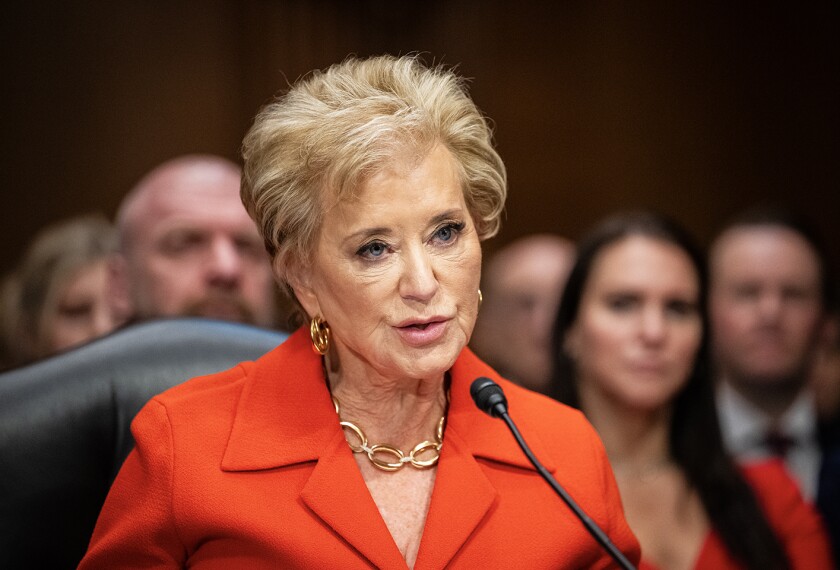When he was just 22 years old, William D. Hansen took his first job at the Department of Education, which at the time had only recently been converted to Cabinet-level status.

He was a special assistant to Terrel H. Bell, President Reagan’s first education secretary, who was from Mr. Hansen’s home state of Idaho.
“I was a very junior special assistant,” Mr. Hansen recalled recently. Among his first tasks was to help promote the department’s legislative agenda in Congress.

|
Twenty years later, he’s not so junior anymore. Mr. Hansen in May was sworn in as the deputy secretary, the Education Department’s No. 2 position. In that capacity, he is the chief operating officer, in charge of day-to-day programmatic and budget policy, as well as management and operations.
Mr. Hansen’s engagement in politics and public policy began long before he first set foot in the Education Department. His father, former Rep. George Hansen, R-Idaho, served seven terms in the House of Representatives over the course of three decades. Beyond helping out with his father’s campaigns, the deputy secretary had worked on Ronald Reagan’s presidential campaign as well as Republican senatorial campaigns before joining the department.
“I was always involved in public policy, even as a youngster,” he said.
Over the years, Mr. Hansen served in a variety of leadership posts at the Education Department, along with brief stints at the departments of Commerce and Energy. In 1986-87, he worked on the reauthorization of the Elementary and Secondary Education Act in the office of legislation. When that measure was signed into law, then-Secretary William J. Bennett asked him to become the deputy assistant secretary for elementary and secondary education. In that job, Mr. Hansen focused on producing and disseminating the federal regulations to accompany the revised ESEA.
Mr. Hansen returned to the department in 1989, during the first Bush administration, to lead an initiative on school choice before ultimately serving as the assistant secretary for management and budget, at that time the department’s No. 3 position.
He took a long hiatus from the federal government when Democrat Bill Clinton won the Oval Office. But he stayed in Washington to serve as the executive director and chief executive officer of the Education Finance Council, which lobbies for private lenders of student aid.
His breadth of experience in the department and knowledge of the Washington political scene has given him great credibility with many insiders from both parties, who see him as a solid choice for the deputy secretary’s job.
“Bill Hansen knows the Department of Education and how to get things done better than anybody,” said Vic Klatt, a lobbyist who formerly was a senior aide to Republicans on the House Education and the Workforce Committee and a deputy assistant secretary in the administration of President Bush’s father. Several former colleagues describe Mr. Hansen as low-key, modest, and a hard worker.
Mr. Hansen certainly stirs up far less turbulence than his father, a staunch conservative who championed a series of controversial causes during his tenure in Congress.
For instance, he delivered scathing attacks on the Internal Revenue Service and made unauthorized diplomatic trips to Iran in 1979 during the hostage crisis, which caused an outcry from the White House, the State Department, and many of his colleagues in Congress.
The senior Mr. Hansen was also twice convicted of illegal activity while serving in Congress (and a third time after he left office), although one of those convictions was later overturned by the U.S. Supreme Court.
Of the former congressman’s votes while in the House, one with particular irony in light of his son’s career path took place in September 1979: That’s when George Hansen voted against the legislation creating the Department of Education.




